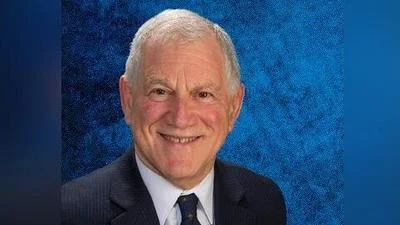Chancellor Kent Syverud | Syracuse University
Chancellor Kent Syverud | Syracuse University
Graduate students from the Experimental Neutrino Physics group at Syracuse University, along with local high school students, are participating in a summer internship program to explore the universe's mysteries. The focus is on neutrinos and cosmic rays, invisible particles that pass through our bodies and are produced by cosmic events like the Big Bang and supernovae explosions.
Physics Professors Mitch Soderberg and Denver Whittington lead efforts with students and researchers to study these particles using advanced detectors. Their work includes collaborations at Fermilab, where they participate in the Deep Underground Neutrino Experiment (DUNE). This experiment aims to understand neutrino oscillation, which could explain why matter dominates the universe.
The DUNE project involves constructing particle detectors underground in South Dakota to study neutrinos sent from Fermilab in Illinois. Physics graduate student Tom Murphy has been involved in testing prototype equipment for DUNE. "Our group members who are resident at Fermilab, including postdoctoral researcher Luis Zazueta and graduate student Tom Murphy, have helped with final detector construction, installation and operations," says Soderberg.
Ph.D. student Sierra Thomas is setting up equipment at Syracuse University to observe cosmic events using a new Liquid Argon Time Projection Chamber detector. These experiments contribute to enhancing larger detectors at Fermilab.
Fermilab also hosts the Short-Baseline Neutrino Program with three particle detectors: ICARUS, MicroBooNE, and SBND. This program searches for neutrino oscillations that might reveal a fourth type of neutrino. SBND recently identified its first neutrino interactions after nearly a decade of planning and construction.
"I’m proud of the work that our team has been undertaking," says Whittington. "I find the process of building, understanding and operating these experiments very engaging."
Students interested in this research can learn more on the Experimental Neutrino Physics group's website.





 Alerts Sign-up
Alerts Sign-up